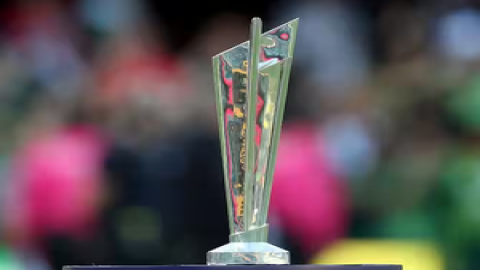
India's road to T20 World Cup winds through generational shift, new challenges (Image Source: IANS)
T20 World Cup: The cricketing fraternity bore witness to a stoic Virat Kohli passing on the baton to the next generation after India's heart-wrenching World Cup loss.
As the cricketing world grapples with the aftermath, the 2024 T20 World Cup in the West Indies and the USA looms large, presenting a formidable challenge for Indian cricket.
With the T20 World Cup on the horizon, Rohit Sharma and Rahul Dravid find themselves at the helm, not just as captain and coach, but as individuals on a personal quest for a world title.

